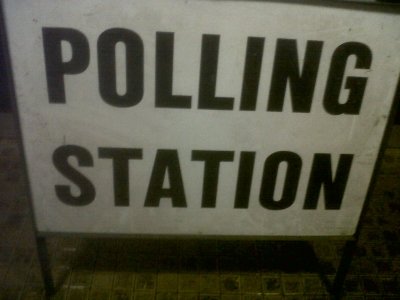A little while ago ago Christine Paine suggested that I write something about what is involved when you become a councillor. Here’s a few thoughts off the cuff:
First of all , in our area there are three kinds of councillors .? At the top level you have the five County councillors for our area. The County Council deals with big subjects like highways, social services, education and libraries. Meetings are daytime, generally in Chelmsford. As each County Councillor represents a lot of residents, if he or she is? doing their job properly they have quite a heavy workload which makes it tricky, but not impossible , to combine with an ordinary job. County Councillors get a basic allowance of about ?10,000 per year.
At the next level down you have the 39 District Councillors. The District Council deals with things like most planning applications, most parks, waste collection and recycling, leisure and car parks. Meeting are mostly evening , though some are in daytime, and are normally held in Rayleigh. Planning issues tend to be very important. District Councillors represent a smaller electorate , so their workload is less, but they will also be asked by residents about stuff that the County Council deals with such as? highways. Basic allowance for district councillors is about ?4000 per yaer.
At grassroots level you have town Councillors in Rayleigh, and parish councillors in Rawreth , Hullbridge and all the other parishes in the district. Parish and Town councils vary considerably in size and activities, some have allotments or manage open spaces, some run events like the Rayleigh Christmas Lights. Parishes are consulted on planning applications. Meetings are normally inside their own parishes, though parish councillors may well travel to attend or speak at other council meetings. Parish councillors are frequently asked by residents for help on County or District issues. Allowances tend to be small, expenses-only, or zero. Parish or Town councillors may need to be more ‘hands-on’ than their District or County counterparts – if there’s an event to be run, they may need to join in, they don’t have a big team of officers to run it for them…
Whatever type of councillor you are, there are meetings to attend, and generally a lot of reading to do, and residents to help. But really each councillor has their own way of doing things. Some like using email and websites a lot, some don’t. Some like to speak a lot in meetings, others only speak when they have to.? Some like to hold regular surgeries, other don’t do surgeries and just visit people in their homes.? We all have opportunities for training – you’re not just thrown in at the deep end!
At District or County level almost all councillors are in a group. Even independent councillors tend to form an ‘independent group’. One reason for this is that where councils have committees, places on those committees are shared out according to the size of each group. And most people stand for election to District or County at the urging of a political party.? People imagine that councillors belonging to a political party are controlled by some kind of party mafia, but that’s not been my experience – I’ve never been compelled to vote against my conscience, and as a small council group leader I certainly am not instructed by party HQ on how to perform or how to vote.
Whether you are an independent on a parish council or in? a group on a district council,? teamwork is important ;? for example one member might be good at going through the council budget but hesitant at speaking in public. He or she may have a colleague who isn’t so good at accounts but is a persuasive speaker…. or one councillor might build up expertise in? the planning rules, while another? might be more interested in health or social services issues..
But most important – being a councillor is about helping people, either individuals or a whole community, and you have to have a little bit of passion for that. And you have to be able to work with people, whether they are agreeing with you or not. And you have to be willing to listen to criticism…..
And finally – it’s easier than you think….


Hi Chris
Hope that you do not mind the impertinent questions but I would expect potential candidates to ask anyway.
Does each candidate for your party pay personally for election costs?
What about mid term leaflets?
As you might guess Christine and I pay personally for all these but I have always been curious to know about the national political parties.
Thanks
John
Thank you Chris, that is very interesting and certainly gives a good insight into what is involved.